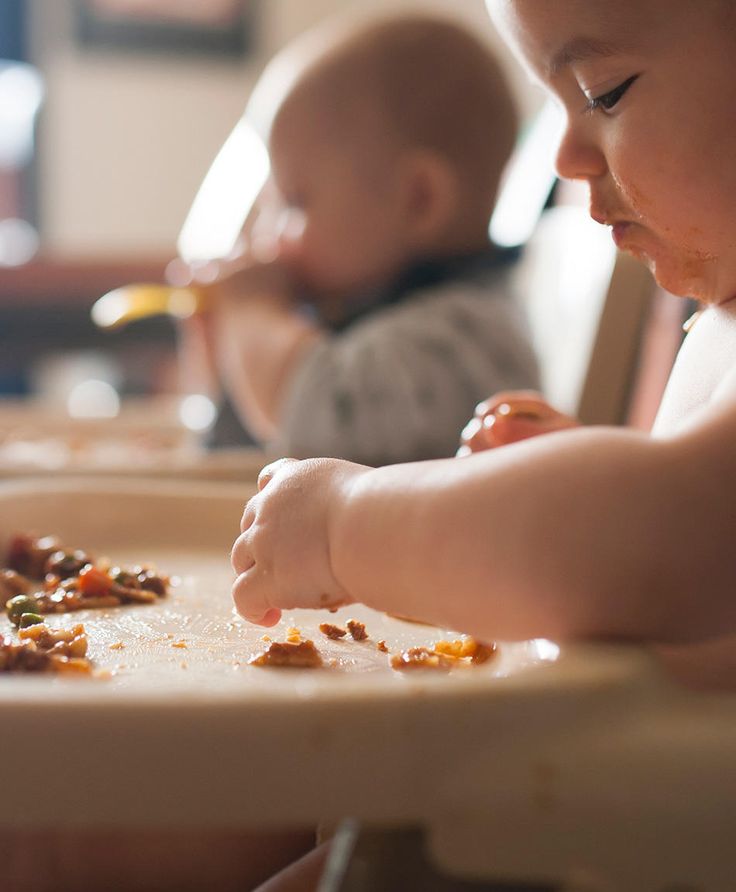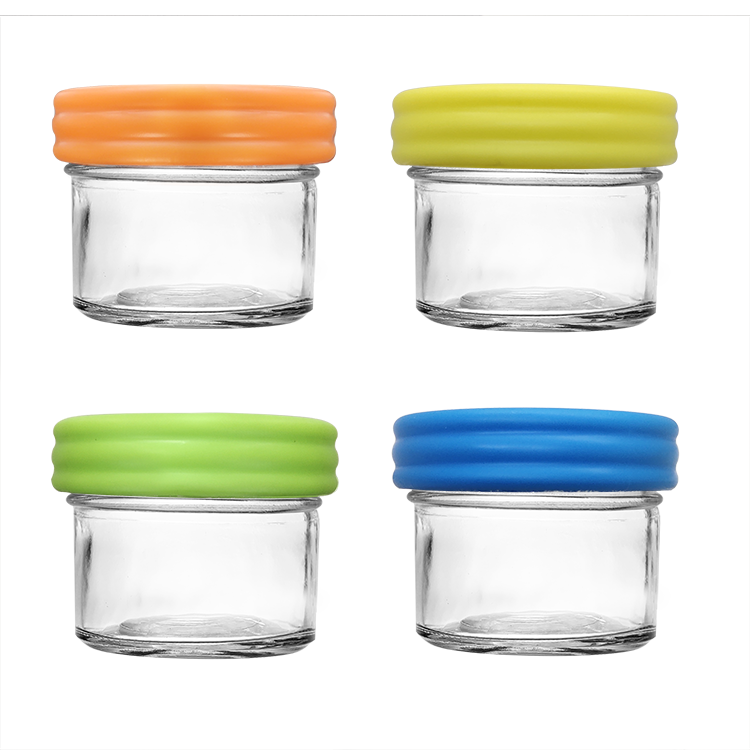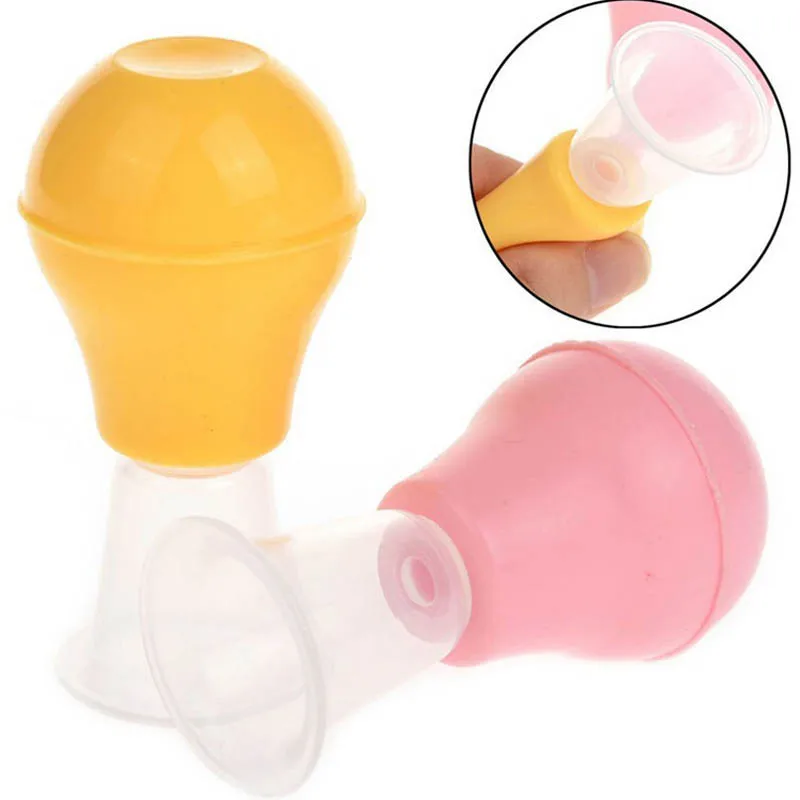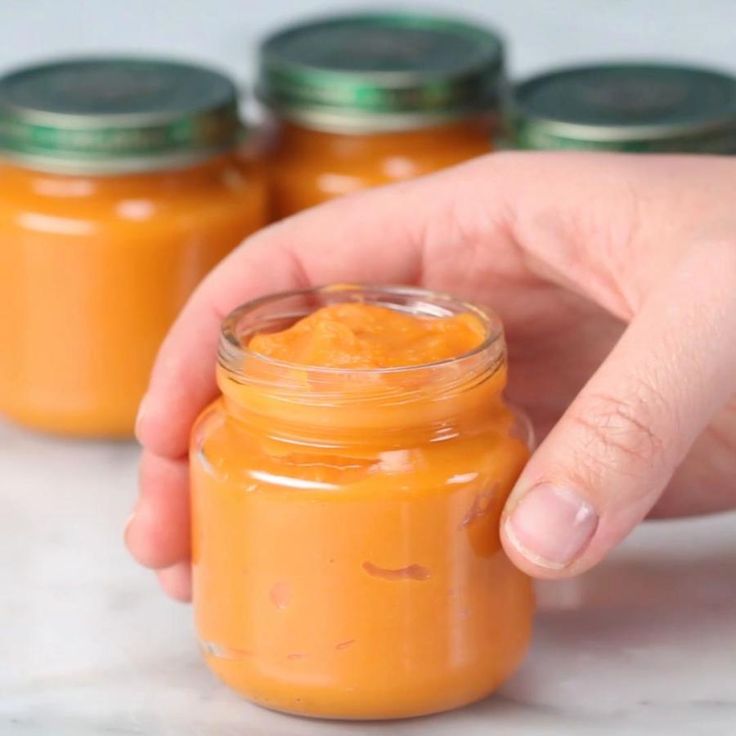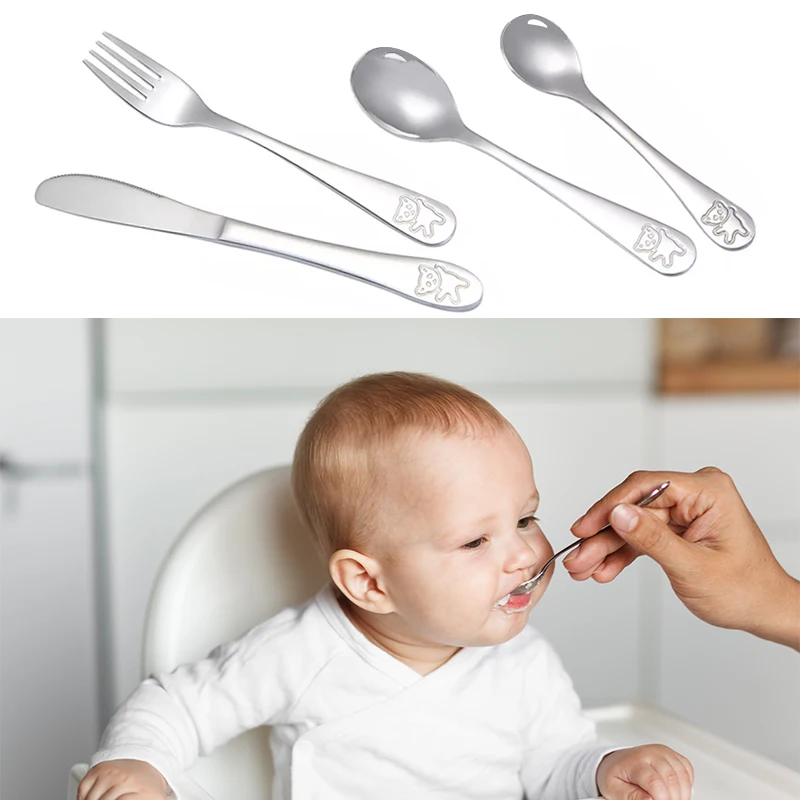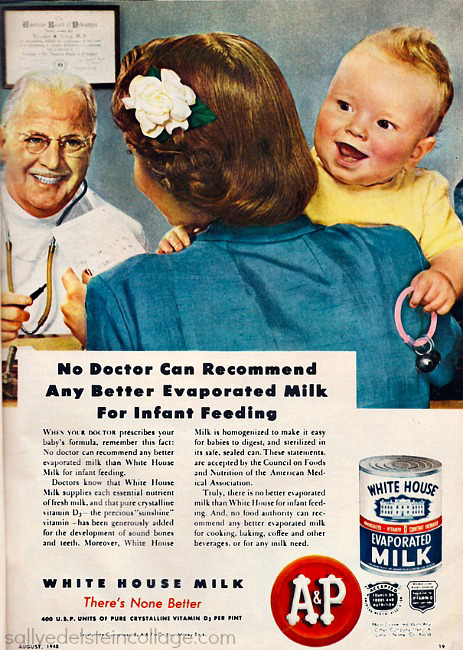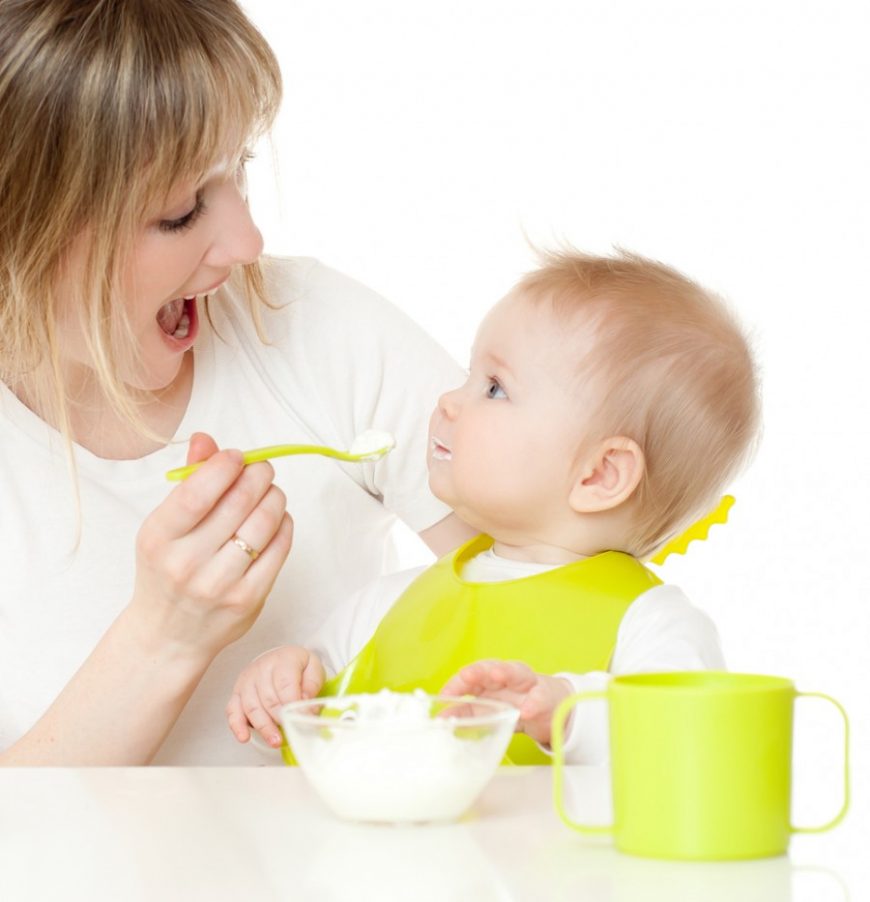Baby cries when trying to feed solids
Is Your Baby Crying While Eating Solids? Here’s Why
Introducing your baby to solid foods is exciting! Every parent knows to expect a bit of a mess during this stage. What they don’t expect, however, is crying.
As a matter of fact, one of the most common questions parents have is, “Why is my baby crying while eating solids?”
Keep reading to learn all of the possible answers to that question. You’ll also find a couple of interesting things you’re likely to come across as you introduce solid foods to your baby.
Why Is My Baby Crying While Eating Solids?
Think about all those textures and different tastes awaiting your baby’s taste buds! It sounds so exciting and new, but that’s only because we know how good solid food tastes.
Your baby doesn’t; not yet anyway. Parents see their baby crying while eating solids and they freak out.
We know how important your baby’s dietary needs are, so we compiled a list of all the possible reasons why your baby is crying while eating solid food.
Read on to learn more.
1. Dry Foods
As you begin to introduce solid foods to your baby, remember that they’re still getting used to how food feels in their mouths.
Plus, it starts to coat their mouths and throats after a couple of bites. That’s another thing they’re still getting used to.
Maybe your baby is simply thirsty. Remember that they’ve enjoyed a liquid diet all their lives. Solids can make them feel thirsty even after the first few bites.
Make sure you have some type of liquid nearby so your baby can quench their thirst. This can be breast milk, formula, or water.
Also, find a cup that your baby feels most comfortable with. It’ll go a long way in easing their fussiness, especially when they’re eating solids.
Some babies like sippy cups. Others like cups with a straw. If your baby still wants to drink from their bottle, that’s okay too. Just make sure they’re happy and learning to enjoy their food.
2. Sore Gums
Teething is a time in your baby’s life when their gums will be pretty sore. It could be why your baby has been in such a bad mood lately.
It could be why your baby has been in such a bad mood lately.
It’s also hard for your baby to swirl solids, even pureed, in their mouths with swollen gums. So, they start to cry to try and get you to feel their pain.
If your baby isn’t accepting of solids because of teething, wait a few more days. If you don’t want to stop offering solids during this time, here are some soft foods you can try:
- Cottage cheese
- Bananas
- Apple sauce
- Pureed carrots
- Cold cucumbers
3. Trapped Wind
Is your baby gassy or constipated? Abdominal discomfort is one of the first things parents should keep an eye out for when their little ones are crying while eating solids.
Stomach discomfort isn’t something babies tolerate well. Heck, we don’t, why should they?
Then, you come and try to add to their pain by offering solids, and they just can’t take it anymore. So, they start crying.
Begin by checking your baby’s diaper.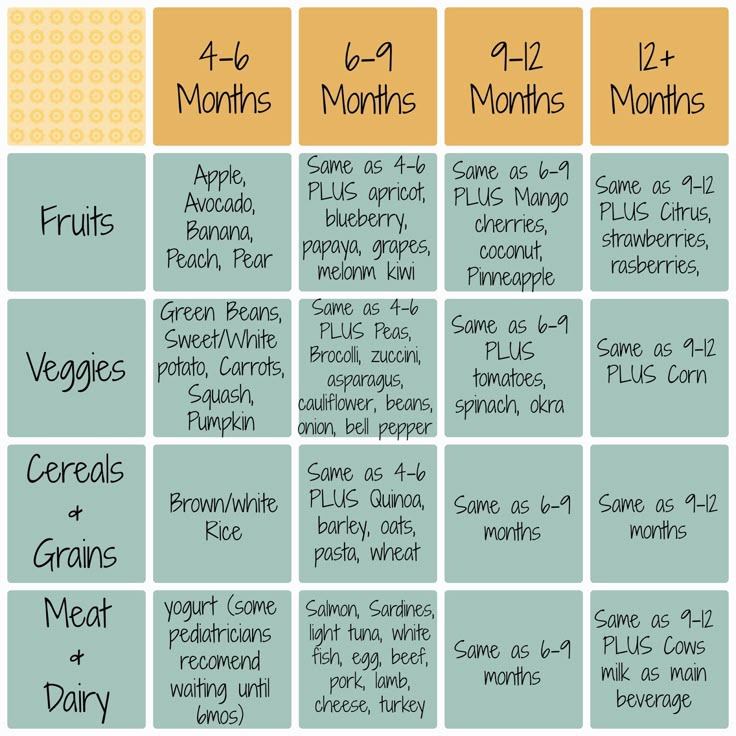 If it’s clean, try reflexology massage (Check the video below) on their stomach area to release any trapped gas. Massaging this area helps move things along to help relieve their constipation.
If it’s clean, try reflexology massage (Check the video below) on their stomach area to release any trapped gas. Massaging this area helps move things along to help relieve their constipation.
Remember to give your baby plenty of fluids if they’re constipated. Also, focus on giving them foods rich in fibers, such as whole grains, fruits, and veggies.
4. Bonding Time
Why is your baby crying while eating solids? Maybe they miss bonding with you. They’ve spent all of their lives safe and secure in your arms every time they ate. Who’d want to give that up?
If you feel that this is the case, take your baby in your lap and offer a piece of carrot or a spoonful of applesauce.
Do they stop crying? Are they more willing to eat solid foods now that they’re sitting comfortably in your lap? If yes, then, problem solved!
One thing to encourage your baby’s independence is to start feeding time in their high chair.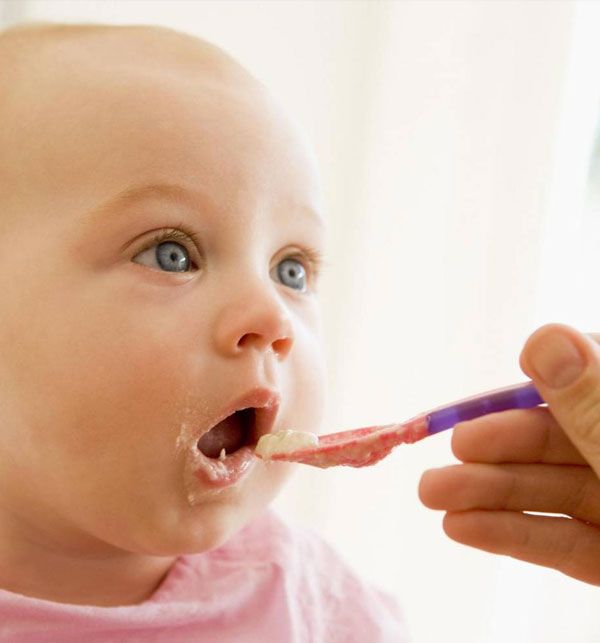 If they cry, then you can put them on your lap. Don’t worry, they’ll grow out of it soon enough.
If they cry, then you can put them on your lap. Don’t worry, they’ll grow out of it soon enough.
5. Allergic Reaction
Food allergies are pretty common in babies. The good news is that most children outgrow them by the time they’re five.
If you feel your baby is allergic to a certain type of food, don’t offer it until you’ve talked with your pediatrician. Also, check to see if there’s any history of food allergies in your family.
Allergic reactions in babies come in many forms. They can include the following:
- Diarrhea
- Gassiness
- Mucus in the stool
- Hives, usually along the mouth
- Watery eyes
- Wheezing
- General crankiness
6. Sensory Shock
It takes time for babies to get used to the new texture and taste of solid foods. Even pureed solid foods are different from the liquid diet they’ve been used to for so many months.
Experts say that it can take your baby up to 20 times until they start accepting a particular food.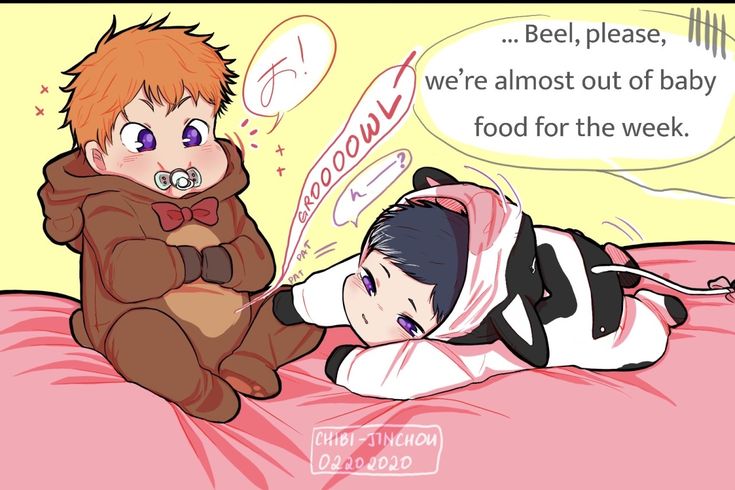 So, follow your baby’s pace and just have fun. They’ll get the hang of it soon enough.
So, follow your baby’s pace and just have fun. They’ll get the hang of it soon enough.
7. A Bug
We’re not talking about the crawly, wriggly kind. We’re talking about the bug or cold that leads to your baby crying while eating solids.
Even a stuffy nose can make your baby cranky and fussy. That’s enough to get them to reject food altogether, not just solids.
The best thing to do is wait it out. It’ll be over in a couple of days, a week at the most. During this time, give your baby plenty of liquids, like breastmilk, water, and even warm herbal teas to make them feel better.
8. Right Timing
When you offer your baby solids, your timing has to be just right. If they’re hungry or too full, they’ll start crying when you offer solid foods.
Try to give small amounts of solid foods an hour after you’ve given your baby breast milk or formula.
This is the perfect time to develop their taste buds without relying on solids to be their main source of nourishment.
If your baby is full, chances are they won’t be interested in eating solids. At the same time, if you wait until your baby is hungry, they’ll be too fussy to accept anything new. All they’ll want is their comfort food, which is the milk they’re used to.
9. Cranky Baby
Babies cherish their naptime. If they’re tired after playtime or an outing, chances are they’ll be too cranky to accept any solids.
The best time to provide solid food is between giving them breastmilk or formula and between their naptime.
The ideal time would be in the afternoon or early evening when they’re in a more playful mood. They’ll be more willing to sit down and try new foods during this time.
10. Force Feeding
Your baby crying while eating solids could be because of how you’re handling the whole feeding process. Are you feeling anxious? Nervous? Angry, even?
Without saying a single word, your baby understands exactly how you’re feeling. They read your facial expressions.
So, if you’re frustrated, your baby will also get frustrated and scared. They may even feel pressured into eating. Then, later on in their lives, this negative experience with food can lead to health issues or eating disorders.
Smile a lot. Try not to focus on how much food actually makes it into your baby’s mouth. Instead, make feeding time playful and fun.
What to Expect When Feeding Your Baby Solid Foods
Starting on solids should be fun and enjoyable for you and your baby. Our advice for getting through this milestone in one piece is don’t set high expectations.
It can get hectic at times, but it’s a precious time in your baby’s life. Enjoy every moment so you can provide your baby with a positive feeding experience that will last their entire lives.
Also, remember to take it slow. Give your baby’s taste buds time to develop and get used to all the new tastes.
Here are a few things to expect when introducing solid foods to your baby.
- Your baby will make adorable funny faces as they experience new textures and flavors
- You’ll be cleaning your baby’s chair, the table, and the floor a lot! Embrace the mess.

- Introduce one food at a time and wait a week before offering a new one
- Be patient and, more importantly, be consistent at every meal
- Babies usually take longer to get used to veggies because they’re more bitter
- Mixing pureed solids with breast milk or formula, in the beginning, makes it tastier
- Don’t be surprised if you catch a glimpse of a piece of carrot or pea in their diapers!
When Is the Best Time to Start Feeding Your Baby Solids?
Many babies are ready for solids by the time they’re six months old. Experts recommend giving babies only breast milk or formula for the first six months.
Then, after six months, slowly cut back on the liquid diet while introducing small amounts of pureed solids. This is what their digestive systems are designed to handle.
So, don’t rush it. Some babies are more willing to try solid foods, whereas others will be more reluctant to begin this journey of discovery.
That being said, it’s also not a good idea to wait too long to introduce solids. Older babies may be more resistant to learning to chew and swallow. They’ve gotten used to the much simpler method of breastfeeding or bottle feeding.
Older babies may be more resistant to learning to chew and swallow. They’ve gotten used to the much simpler method of breastfeeding or bottle feeding.
Here are a few signs that your baby is ready for solid foods:
Baby-Led Weaning
Many parents wait until their babies have at least a couple of teeth and can sit up on their own before offering actual solids. It’s called baby-led weaning.
Baby-led weaning is when you skip the ‘pureed solids’ stage and go right into offering solids. These are usually thick pieces of sliced veggies or fruits that your baby can hold in their hands.
This usually takes place around eight months when they can hold out their index finger in a pincer grasp.
Interest in Table Food
You know your baby’s ready for solid foods when they begin to watch you eat. They may even try to grab your spoon and imitate what you’re doing.
This is a terrific sign and parents get excited when they see their adorable babies start to show interest in food. Yet, it can be dangerous because certain foods pose a choking hazard.
Yet, it can be dangerous because certain foods pose a choking hazard.
If your baby begins grabbing table foods, try not to leave them unattended. If you do, make sure you remove any foods that are choking hazards, such as the following:
- Whole grapes
- Popcorn
- Hot dogs
- Hard or sticky candy
- Raw veggies
Tongue Thrust Reflex
The tongue-thrust reflex is when your baby’s tongue pushes the food out. Thrust reflex is normal in all babies, but it’s a sign that your baby isn’t ready to be spoon-fed (Check the video below).
To figure out when your baby’s thrust reflex has disappeared. Mix some baby food with a drop or two or breast milk or formula. Place a tiny bit on a spoon or the tip of your finger and feed your baby.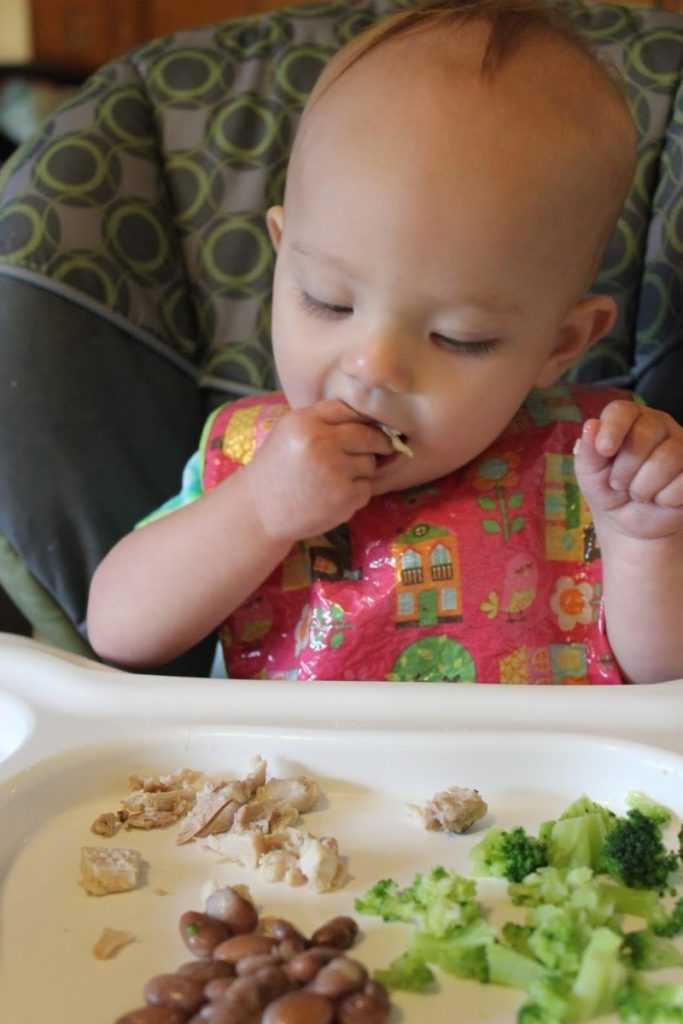
If your baby takes the food, swirls it around a bit, then swallows, that’s great! This means your baby’s tongue thrust reflex has disappeared.
If the food comes back out as soon as you feed your baby, the reflex is still there. Wait a couple of more weeks, then try the test again.
A Final Note
To have your baby crying while eating solids is a normal part of the process; up to a point.
If they keep on crying, then you have to address the issue early on. It’s the best way to prevent any emotional problems your child may suffer when they’re older.
Remember to be patient and consistent. Your baby needs time to get used to this new type of diet.
Come up with creative ways to present solid foods to get your baby engaged. Also, it’s perfectly natural for your baby to play with their food. It’s their way of familiarizing themselves with the new textures and flavors.
So, relax and enjoy this precious time you have with your baby. It’ll be over before you know it.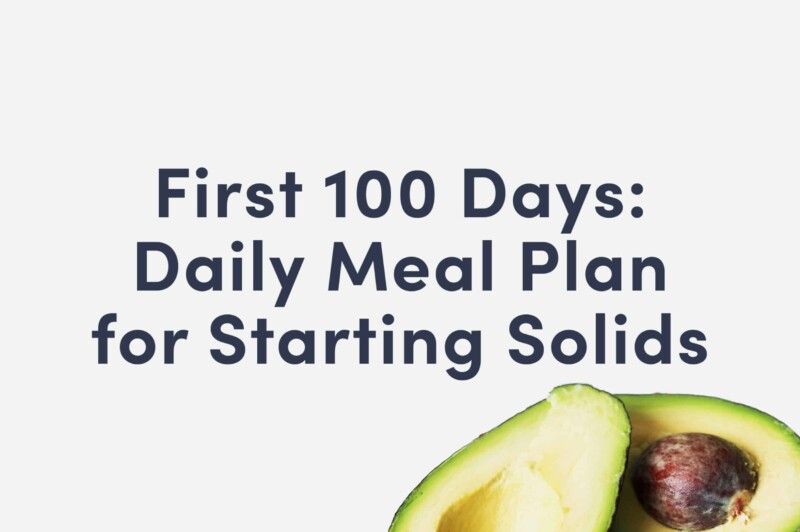
Is Your Baby Crying While Eating Solids? Reasons and Tips To Help
We’re supported by moms. When you buy through links on our site, As an Amazon Associate, I may earn a commission.
If you’ve noticed that your little one is fussy and crying while eating solids, don’t panic. There are many reasons why this might be happening, and we’ve put together some of our top tips to help you out!
Your baby may not like the food that they’re eating, or they may not be ready to eat solids. But whatever the reason, it can be a frustrating time. Here are some of the top reasons that your baby might be crying when they are eating solid foods.
Table of Contents
- 1 Reasons Why Your Baby Is Crying While Eating Solids
- 1.1 Hungry Or Full
- 1.2 Tired
- 1.3 Discomfort
- 1.4 Teething
- 1.5 Texture
- 1.6 Pressure
- 2 Tips For Feeding Solids To Your Baby
- 2.1 Texture
- 2.2 Time
- 2.
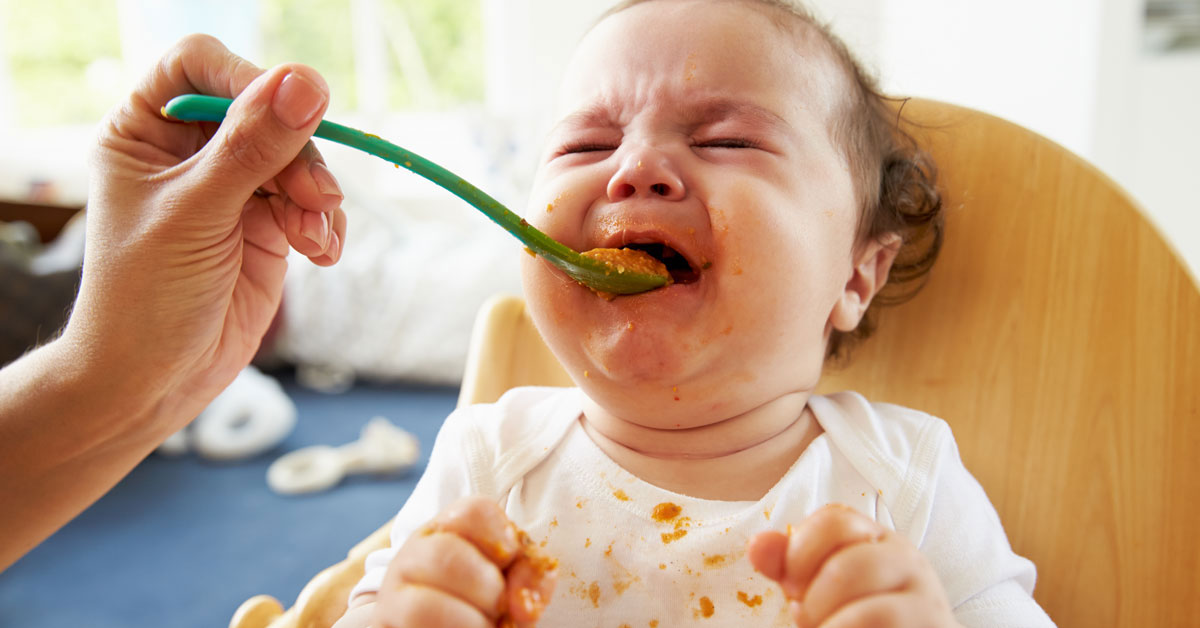 3 Stress
3 Stress
- 3 FAQs
- 3.1 How do I get my fussy baby to eat solids?
- 3.2 What do I do if my baby doesn’t like purees?
- 3.3 When should I worry about my baby not eating anything?
- 4 The Final Thought
Reasons Why Your Baby Is Crying While Eating Solids
There are many reasons why your little one isn’t eating solids well or is fussy or crying when you are feeding them solids. Here are some of the main reasons that your little one is upset when they are eating solid foods.
Hungry Or Full
One of the simplest reasons that your baby may not be happy eating solids is because they are too hungry or too full. If there is too long a gap between your baby’s meals, your baby might refuse to eat solids. Similarly, if your baby is too hungry they won’t accept any solids either.
Your baby is experiencing lots of new flavors and textures as you are beginning to give them solid foods, and if they are too hungry, then a new solid food might exacerbate the problem.
When your little one is hungry, they will only want comfort food, as we do when we’re hungry, and for your baby, their comfort food is milk.
If your baby is too full, they may not be in the mood to try any new foods.
If your baby has already had milk and is reluctant to try any new foods, then you can assume that they are a little full, and you may need to leave a longer gap between feeding them milk and offering them some solids.
Tired
View in gallery
You may be trying to feed your little one when they are too tired. Again, when babies are feeling fussy or tired, they want comfort, and milk is their comfort.
Your little one needs to be awake and happy when they are trying new things, so you should consider offering them some new foods after they’ve been awake for a while.
Choose a time after your little one has awoken and is playing, but before they get too tired. This will ensure that your baby is in a good mood to try something new, and isn’t too worn out from playing.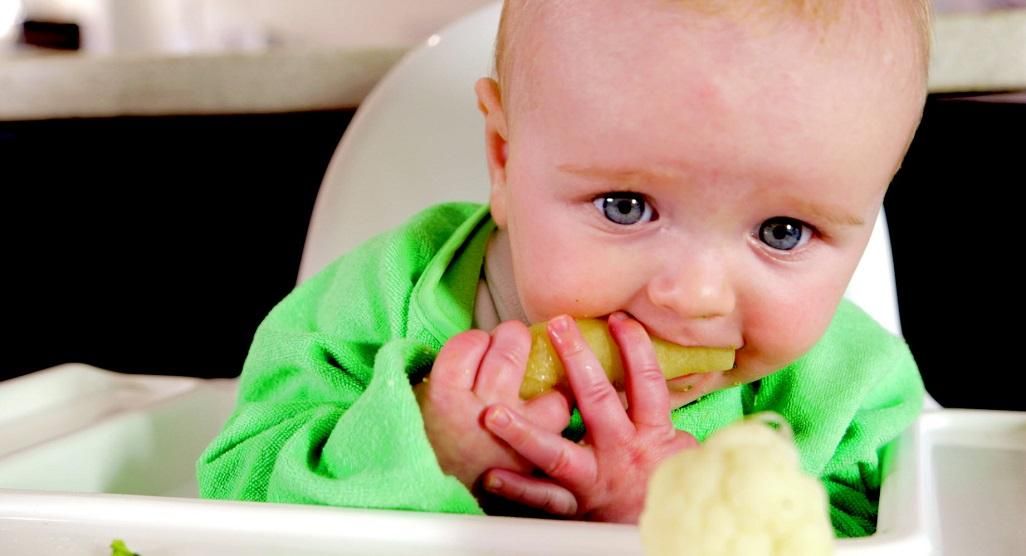
Discomfort
Your baby might be uncomfortable, and just like you, when they are feeling uncomfortable, they won’t want to be trying any new foods. Crying is the way that your baby communicates with you, so if they are crying there is likely something wrong.
Your little one might have a full diaper or they may be uncomfortable in their highchair. Check that the straps are not too tight or that your little one isn’t sitting on anything uncomfortable that has fallen into the highchair.
Your little one might also be gassy or constipated so make sure that this isn’t the case. If you think your little one might be gassy or constipated, consider consulting with your pediatrician before you continue to give them solids.
Teething
Teething is one of the primary reasons that your baby will be fussy and irritable, so if you notice that your baby is more reluctant to eat solids than usual, they may be teething. If this is the case, your baby might be more likely to want their comfort food, which is probably milk.
If your little one is teething, consider sticking to some cooler solids that may be softer on your little one’s gums. Think of offering them things such as bananas, apples, or yogurt.
Texture
View in gallery
Just like adults, babies may not like something simply because of the texture. Your baby may prefer the texture of a more pureed food, like a pureed fruit or vegetable, or they may like something longer than they can hold, such as apple wedges or carrot sticks.
If your little one is fussy because of texture, trial and error is the only way to figure out what your little one prefers.
If they dislike the pureed form of food, like a pureed strawberry or a mashed potato, consider giving them the whole version of this food, like some sliced strawberries or boiled potatoes. You may find that your little one prefers these textures to their softer counterparts.
Pressure
Your little one may be having some issues with solids because they feel pressure to eat or enjoy these foods.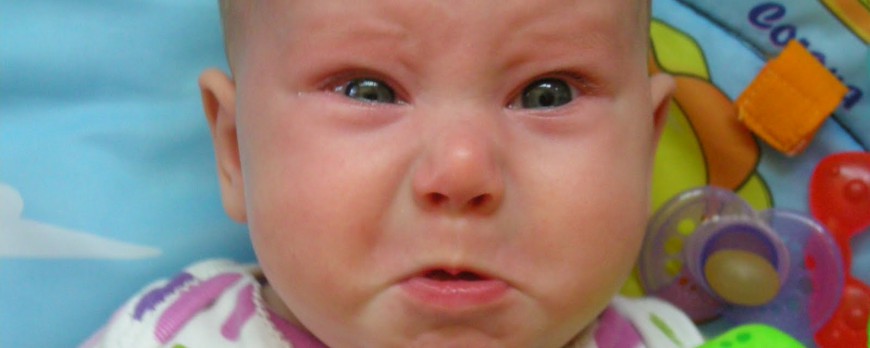
Try not to crowd your baby or hover over them as they eat, and if they are reluctant with a certain food, try not to show your anger or frustration, as this will only make your baby feel more pressure.
Also, avoid feeding your baby by force. Think about how you might feel if someone was jamming a spoon into your mouth.
If you are trying to feed your baby by force, this can make them feel even more pressure to eat, and can even cause psychological issues surrounding food in the future.
Tips For Feeding Solids To Your Baby
Once you have figured out why your little one is fussy and irritable when eating solids, you may be looking to switch up your approach. Here are some of our top tips for introducing solids to your little one.
Texture
Consider varying the texture of the food that you offer to your little one. If they love soft foods like mashed bananas, mashed potatoes, yogurt, and pureed fruit, consider offering them something tougher to see how they respond.
View in gallery
Little ones love to feed themselves, so consider giving them veggie sticks, like carrots, cucumbers, or even bell peppers for a fun texture. They may like something crunchy, so consider offering them something like chips.
There are plenty of chips available made specifically for little ones, so one of these is your best bet. You could always try some of the pre-made baby food and see if you are more successful.
Time
Introducing your baby to solids can be a tricky business, so consider taking your time in making these introductions. Start off by introducing solids during one meal of the day, or during snack time.
Continue to offer your little one milk during their other mealtimes and introduce some different foods slowly, to avoid any unnecessary stress.
Stress
Don’t worry if your baby doesn’t like something. As they are beginning to sample new foods regularly, it is worth offering them something a few times before deciding whether or not it is something that they like.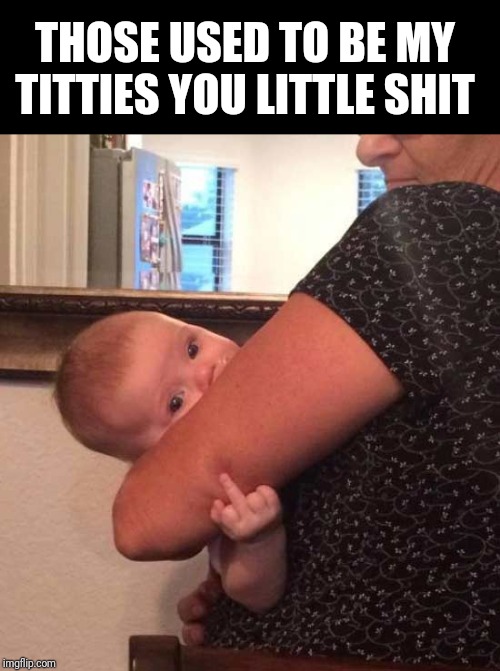
If you notice that after several tastings your baby still doesn’t like something, avoid offering them it again. We don’t like every food that is put in front of us, and your baby will be no different!
FAQs
How do I get my fussy baby to eat solids?
If your baby is fussy, be flexible and patient – you could skip solids at that meal and try at the next meal. There is no need to rush and feeding babies is a slow process, especially when they are just starting out.
View in gallery
What do I do if my baby doesn’t like purees?
If your baby is not fond of runny purees you could try thickening them up a little bit until you find the right consistency for them.
When should I worry about my baby not eating anything?
If your baby is still resisting solids at seven or eight months it would be worth having a chat with a healthcare professional.
Children normally develop eating skills between six months to a year old and if they are still refusing then there is the chance that they may miss that window.
The Final Thought
There are a whole host of reasons why your little one may not be happy with their solids, but most of them are not any reasons to worry. If your baby continues to be fussy when eating solids and this is a cause for concern, consult with your pediatrician who will be able to offer you advice.
The most important thing to remember is that every baby is different, so if your little one is responding to solids slower than some of the little ones around them, this isn’t necessarily a reason to worry.
And if you’re wondering whether your little one is able to eat some of the most popular foods, check out When Can Babies Eat Tomatoes?
Emma Davies
Hi, I'm Emma and I'm a mother to 5 beautiful children aged from 1 to 21 years old- life is hectic! I have learned so much along the way, not only from my own children but also through my professional life. In my positions as a Childminder and Teaching Assistant, I have studied Child Development and The Early Years Developing Practice.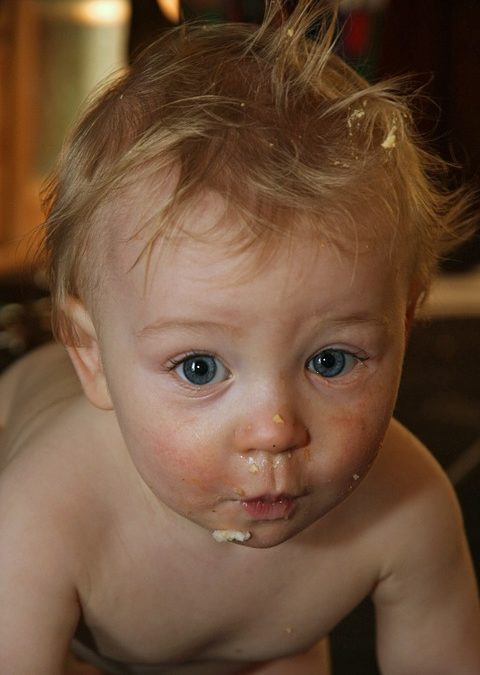 I wish to share all of this knowledge and help you with your own parenting journey!
I wish to share all of this knowledge and help you with your own parenting journey!
why the baby cries while feeding
While the baby is quite a baby, crying is the only way of his communication with his mother and the outside world. If the baby is restless during feeding, he will let you know that he is uncomfortable. We will analyze what can cause baby crying in such a situation.
Dry milk drink "Baby milk" Valio Baby 3 NutriValio for feeding children over 12 months Read more
As a rule, the causes of a baby’s tears at the breast or bottle with a mixture are physiological, and there may be several of them.
Abdominal pain
Most likely, the child is worried about colic (they can start from 2-4 weeks of age and usually end by 3 months). Unpleasant sensations are associated with the fact that the infant has an insufficiently developed intestinal microflora and it is difficult for the digestive system to cope with the task assigned to it. Children's crying during colic is accompanied by arching the back and pulling the legs to the stomach - the pain from the formation of gases in the intestines is always acute. To alleviate the condition of the crumbs, it is useful for a nursing mother to drink teas with fennel, cumin or anise. If your baby is formula-fed, choose formula carefully. Valio Baby baby food is as close as possible to the composition of breast milk and contains the GOS prebiotic, which is necessary for the health of the child's digestive system. The cause of colic is also the wrong feeding technique and, as a result, the capture of excess air by the baby.
Children's crying during colic is accompanied by arching the back and pulling the legs to the stomach - the pain from the formation of gases in the intestines is always acute. To alleviate the condition of the crumbs, it is useful for a nursing mother to drink teas with fennel, cumin or anise. If your baby is formula-fed, choose formula carefully. Valio Baby baby food is as close as possible to the composition of breast milk and contains the GOS prebiotic, which is necessary for the health of the child's digestive system. The cause of colic is also the wrong feeding technique and, as a result, the capture of excess air by the baby.
#PROMO_BLOCK#
Earache
Children under one year old often suffer from otitis media, this is due to the anatomical features of the structure of the nasopharynx in babies in the first months of life. A baby may cry during feeding because swallowing causes a sharp pain in his ears. Very carefully touch the tragus of the baby's auricles - if he cries, then you need to see a doctor.
Headache
It is no secret that many neurological disorders are accompanied by headaches. It becomes especially strong when swallowing. If the baby is constantly crying during feeding, be sure to make an appointment with a pediatric neurologist.
Inflammation of the oral mucosa
Crying during feeding may signal that the baby is experiencing discomfort in the mouth or throat. Its cause is most often thrush or pharyngitis. These diseases require treatment under the supervision of a pediatrician.
Lack or excess of breast milk
The lactation of a nursing woman is affected by a considerable number of factors - the psychological state, fatigue, stress, malnutrition and its lack, improper organization of breastfeeding. The baby may cry because he does not have enough milk. Whether the food shortage is really critical is easy to check using the wet diaper method. By the way, the crying of a baby may also indicate that there is too much milk - the stream is too strong and the baby simply chokes.
Unusual taste of breast milk
If a mother ate, for example, something spicy on the eve of feeding, this will certainly affect the taste of milk. The baby, of course, will cry. This cause of children's "grief" is the most easily eliminated - be attentive to your menu and do not upset your beloved baby.
In addition to the reasons described, the reason for children's tears during feeding can be erupting teeth and inflammation of the gums, as well as nasal congestion with allergies and SARS. Be attentive to your baby. If all is well, the baby should not cry while feeding.
3.35 34
Power supplyShare:
Oksana Ivargizova
Medical Institute. Pavlova, specialization - pediatrics
Pavlova, specialization - pediatrics
Author: Reetta Tikanmäki
Palm oil in baby food
Infant milk formulas are made from cow's milk. However, in terms of fat composition, it differs significantly from that of the mother.
Read
Author: Ivargizova Oksana
How to choose milk formula for a baby
Breast milk is the best food for a newborn baby. It contains all the necessary nutritional components that fully meet the needs of the child and are necessary for his healthy and harmonious development.
Read more
Show all
Breastfeeding after 1 month: what to expect
Do you know when breast milk production stabilizes? And how does the frequency and duration of feedings change as the baby grows? You will find answers to these questions in our recommendations for breastfeeding after the first month.
Share this information
Congratulations: You made it through the first month of breastfeeding. Your breast milk has reached full maturity 1 , its production stabilizes and it leaks almost or not at all from the chest. Don't worry, it's not getting less milk, it's just that your breasts are better able to produce and store it now. 2 At the age of six weeks, your baby will begin to please you with his charming toothless smiles, and by two months you will already have 500-600 feedings behind you. With a favorable development of events, problems with latch on by this point will already be resolved, and you can simply enjoy the convenience and benefits of breastfeeding.
When is the frequency of breastfeeding reduced?
"Normal" feeding frequency for babies aged one to six months varies considerably, with some needing four times a day, others needing to be breastfed 13 times a day. 3
“From the age of one month, the amount of milk a baby consumes per feeding increases so that he can go without food for longer,” explains Cathy Garbin, a recognized international expert on breastfeeding, “A baby’s stomach grows, so he eat more at one time.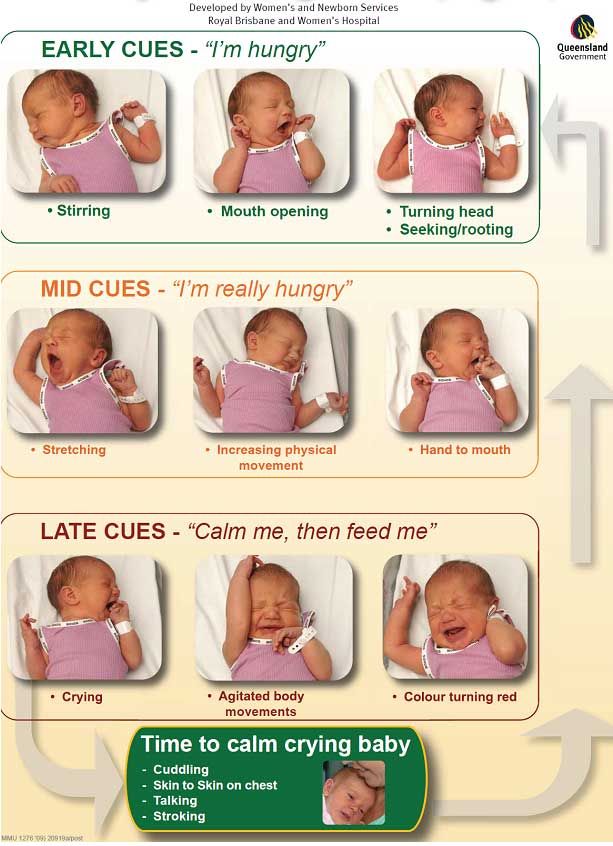 In addition, mature milk allows him to stay full longer.”
In addition, mature milk allows him to stay full longer.”
Feeding can last from 12 minutes to one hour -
the habits of babies vary so much! 3 But if the child is gaining weight and falls within this range, there is no cause for concern.
What is most surprising, no matter how often the baby eats, he consumes approximately the same amount of milk per day - both at one month and at six, when it is time to start complementary foods with solid food. 4
“However, sometimes the baby eats more and sometimes less, especially when he is unwell. It’s better to just listen to his needs,” Katie explains.
Is breastmilk sufficient for the first six months?
Yes. Breast milk contains everything a baby needs for the first 90,100 six months of life—exclusively breastfed babies don't even need to drink more water! 5 Until about six months of age, the child's digestive system is simply not adapted to the digestion of solid food, and he will be able to drink cow's milk only after a year.
In addition, breastfeeding during this period prepares the child for further development. It strengthens the muscles of the mouth, develops the jaw and helps straighten the teeth 6.7 . All this will come in handy when the baby begins to eat and talk. And because what you eat and drink affects how your breast milk tastes, your baby discovers new tastes even before he starts eating solid foods. 8
In addition, when your baby is sick, your body produces breast milk that is
rich in antibodies that help fight infection. 9 In other words, milk continues to protect the baby for many months as it grows and becomes more active.
Breastfeeding is also very comfortable once you get used to it. Claudia, a mother of two from the UK, notes: “No need to sterilize a mountain of bottles, prepare formula, carry it all with you, warm it up - in general, breastfeeding turned out to be very convenient, especially when my babies grew up and we began to leave the house more often.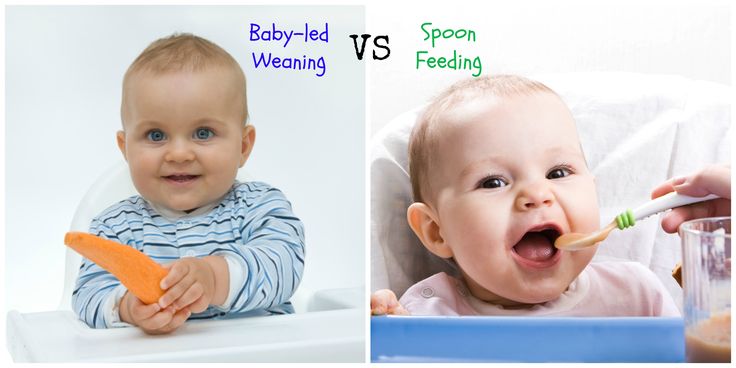 ".
".
At what age does a breastfed baby start sleeping through the night?
Waking up at night is normal for babies. Most babies between the ages of one and six months consume a fifth of their daily milk requirement at night, so nighttime feedings should not be neglected if you want your baby to get the required amount of calories. 3
"It really depends on what you mean by 'sleep through the night'," says Cathy. "And it's better than waking up every two hours anyway! I have met infants who, starting at six weeks old, fell asleep at 19:00 and woke up at 7:00, but most continue to wake up frequently at night after this age. All children are different."
In Wales, a study of more than 700 infants showed that almost 80% of children aged 6 to 12 months wake up at least once a night, and 25% of them wake up three times or more. And it did not depend on what type of feeding the child is on - breastfeeding or artificial. 10
And if nighttime awakenings are unavoidable anyway, breastfeeding is at least comfortable! Maina, a mother of two from Australia, agrees: “You can even take a nap while feeding in the middle of the night - both the body and the baby do their job on autopilot. No need to plan, measure, sterilize anything - ready-made food at the right temperature is right in your chest. I think it's ideal."
No need to plan, measure, sterilize anything - ready-made food at the right temperature is right in your chest. I think it's ideal."
My child wakes up more often. Perhaps he is hungry?
Around four months of age, a baby's sleep pattern changes as he, like an adult, develops deep and light sleep phases. Because of this, he may wake up more often at night. “At four months, sleep is more of a problem than feeding,” Cathy admits. “It can be exhausting, but try to adapt and be patient.”
Some people call this " a four-month sleep regression ", but "progress" is more appropriate here. From the outside it may look like a step back, but in fact the child is approaching an important stage of development. He learns quickly, begins to become aware of the world around him, his perception is sharpened and, perhaps, there is anxiety about being separated from his mother. Crying when waking up and being able to eat milk cuddled up to mommy’s chest is a way for a baby to calm down. 11–13
11–13
Resist the urge to “finish” your baby with formula or to start complementary foods early
in an attempt to improve his sleep. Breast milk contains
hormones that make you sleepy and help you both relax
. Studies show that breastfeeding mothers actually sleep longer at night than mothers of formula-fed or mixed-fed babies
. 14
How does teething affect breastfeeding?
Teething usually begins around four months of age. When a baby has gum pain, he becomes restless, throws his chest and cries. All this, of course, is unpleasant.
However, breastfeeding can be an excellent sedative.
Studies have shown that babies who are breastfed
during the vaccination period cry less and forget pain more quickly. 15 Breastfeeding during teething can have the same calming effect.
An unpleasant side effect may be the child's attempts to try out his new teeth on the mother's breast. “Sometimes children flirt and bite their mother’s nipples.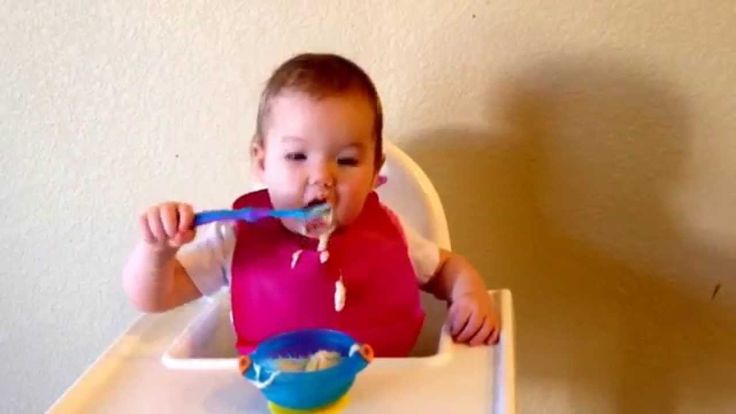 This can be felt in advance by how the behavior of the child changes when feeding: before biting, he removes his tongue, explains Cathy, “Usually this is not a problem and only happens a couple of times. It is enough to stop feeding, affectionately say that biting is not good, and the baby will soon leave this fun.
This can be felt in advance by how the behavior of the child changes when feeding: before biting, he removes his tongue, explains Cathy, “Usually this is not a problem and only happens a couple of times. It is enough to stop feeding, affectionately say that biting is not good, and the baby will soon leave this fun.
How to continue feeding if you have to be separated from the baby?
It happens that during the first six months, when the baby is still fully breastfed, the mother needs to be away for several hours - or even longer if she has to go to work or go away on business for a couple of days.
But this does not mean that you should stop breastfeeding. You can still feed your baby healthy breast milk - just express it and have someone give it to your baby when you're away. Here's Katie's advice:
“Start expressing milk a couple of days in advance, in small batches, 40-60 ml at a time. So you will have the necessary supply for the time of your absence, but at the same time the amount of milk produced will remain the same.
If you have to return to work, check with your employer about your daily schedule. Many mothers breastfeed their babies in the morning, evening and night, and pump milk at lunchtime to relieve discomfort and create a reserve for the next day.
This usually turns out to be much easier than one might think, and today many companies are well placed to do this, notes Cathy. “Breast pumps make it easy to solve this problem.”
Natalie, mother from the USA, shares her experience: “I feed Dylan as soon as he wakes up, and sometimes again before leaving for work, in order to maintain milk production and not lose contact with the child. At work, I pump twice the next day (in my absence, he eats two bottles of breast milk), and after work I rush home for the evening feed. I don't pump on the weekends - we resume regular breastfeeding."
Is it possible to continue breastfeeding after the introduction of solid foods?
When your baby begins to show interest in food and can sit up on his own - usually around six months of age - it's time to start solid foods.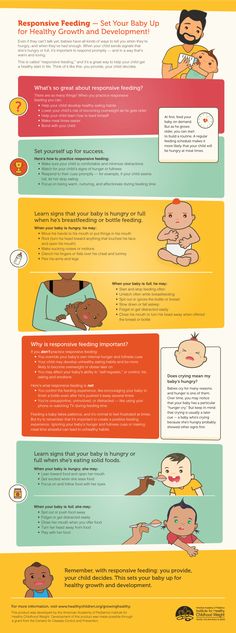 However, it is not necessary to stop breastfeeding, Cathy explains: “A baby’s iron stores during pregnancy are depleted by six months, so he needs additional sources of this element.
However, it is not necessary to stop breastfeeding, Cathy explains: “A baby’s iron stores during pregnancy are depleted by six months, so he needs additional sources of this element.
Start complementary foods with solid foods, but remember that breast milk remains a more important source of calories and nutrients until the baby is eight to nine months old. By this time, he will be eating much more solid food, but he will still need to breastfeed four to five times a day. By 12 months, the frequency of feeding may be two to six times a day. All babies are different, and many of them at this age are still getting half their daily calorie intake from breast milk.”
Don't forget that breast milk can be added to solid foods, such as cereals and purees, so that the baby can taste the familiar taste. If possible, use milk expressed just before feeding (not thawed) and add just before serving to keep bacteria and nutrients alive. 16
You may be pressured by others to stop breastfeeding when your baby is six months old, but the longer you breastfeed or pump milk, the better for you and your baby.
How long can I continue breastfeeding?
“The World Health Organization recommends breastfeeding along with solid foods until at least two years of age because it plays an important role in supporting immunity,” says Cathy. feels bad".
At eight months, the baby sometimes breastfeeds four times a day, but by one year old, the frequency of feedings can be reduced to two times a day. You yourself will understand which feeding regimen is more suitable for you and your baby. For example, Jane, a mother of two from the US, breastfed until the age of two: “I breastfed when I was at home - in the evenings and on weekends, when the children wanted to be close to me,” says Jane, “It helped a lot when they were sick . Breastfeeding has become my favorite form of comfort."
“When my son got a little older and bolder, he still often asked me to breastfeed him - as if to calm down and gain strength,” recalls Amy, a mother of two children from Canada, “When he happened to hit or skin his knee , breastfeeding was a wonderful way to comfort him.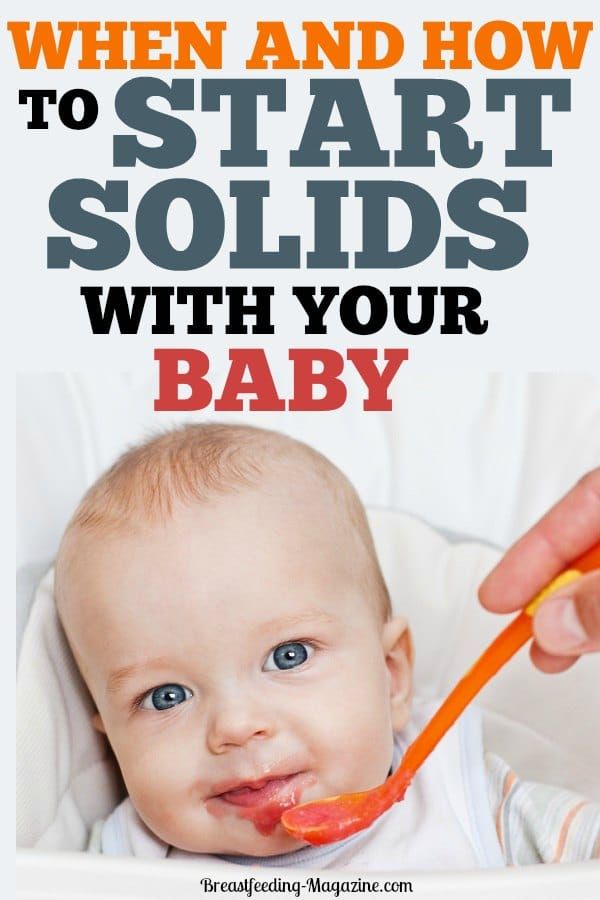 ”
”
If your baby is over a year old and you are still breastfeeding, people around you will probably tell you that this way he will never wean. But if children are not pressured, they usually refuse to breastfeed themselves between the ages of two and four. 17
“I didn’t intend to breastfeed for so long, but as a result, I still breastfeed my four-year-old daughter and 22-month-old son,” says Suzanne, mother of two from the UK, “I breastfeed my youngest before and after work, and in I express milk on business trips. The eldest daughter likes to breastfeed a little before bed or when she is upset - this is a great way to make contact. When I get tired of it, I remind myself what great benefit and comfort it brings them. I now plan to pursue a baby-initiated end breastfeeding strategy — let them decide when to stop.”
For more information on what to expect and lots of tips and tricks, see our guide Breastfeeding Problems After the First Month.
Literature
1 Ballard O, Morrow AL.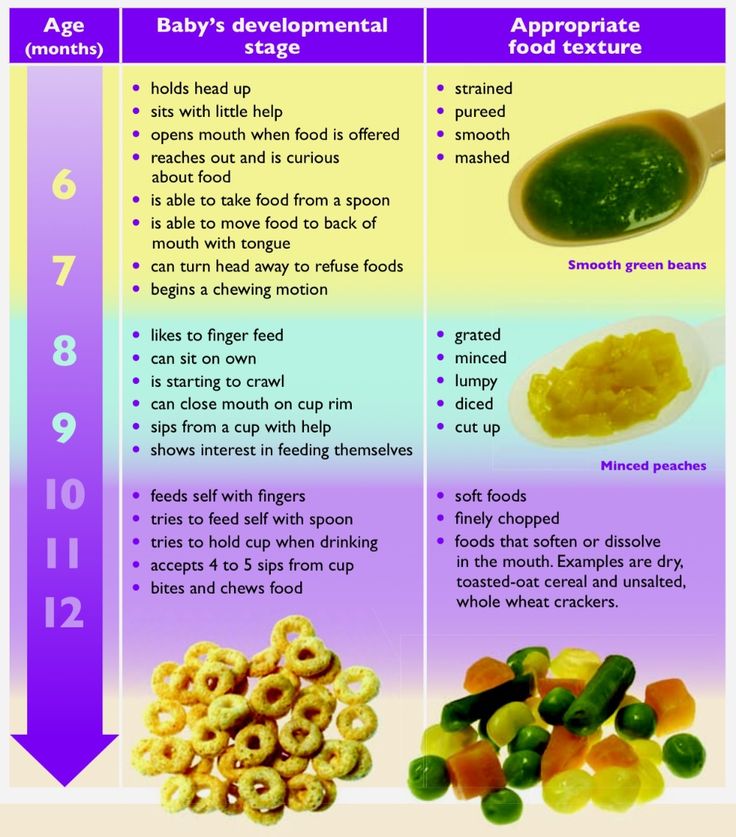 Human milk composition: nutrients and bioactive factors. Pediatr Clin North Am . 2013;60(1):49-74. - Ballard O., Morrow A.L., "Composition of breast milk: nutrients and biologically active factors." Pediatrician Clean North Am. 2013;60(1):49-74.
Human milk composition: nutrients and bioactive factors. Pediatr Clin North Am . 2013;60(1):49-74. - Ballard O., Morrow A.L., "Composition of breast milk: nutrients and biologically active factors." Pediatrician Clean North Am. 2013;60(1):49-74.
2 Kent JC et al. Principles for maintaining or increasing breast milk production. J Obstet , Gynecol , & Neonatal Nurs . 2012;41(1):114-21. - Kent J.S. et al., "Principles for Maintaining and Increasing Milk Production". J Obstet Ginecol and Neonatal Nurse. 2012;41(1):114-121. 9 et al . Volume and frequency of breastfeedings and fat content of breast milk throughout the day. Pediatrics. 2006;117(3): e 387-395. - Kent J.S. et al.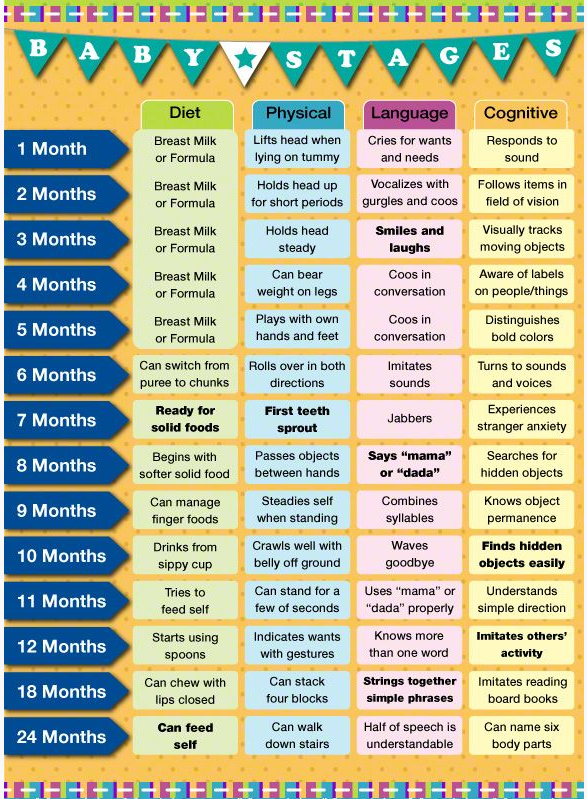 , "Amount and frequency of breastfeeding and fat content of breast milk during the day." Pediatrix (Pediatrics). 2006;117(3):e387-95.
, "Amount and frequency of breastfeeding and fat content of breast milk during the day." Pediatrix (Pediatrics). 2006;117(3):e387-95.
4 Kent JC et al. Longitudinal changes in breastfeeding patterns from 1 to 6 months of lactation. Breast Med . 2013;8(4):401-407. - Kent J.S. et al., Longitudinal changes in breastfeeding patterns from 1 to 6 months of lactation. Brest Med. 2013;8(4):401-407.
5 Almroth S, Bidinger PD. No need for water supplementation for exclusively breast-fed infants under hot and arid conditions. Trans R Soc Trop Med 1990;84(4):602-604. - Elmroth S., Bidinger P.D., "No need for supplementation of exclusively breastfed infants in hot, dry conditions." Trans R Sots Trop Med Hyg. 1990;84(4):602-604.
6 Victora CG et al .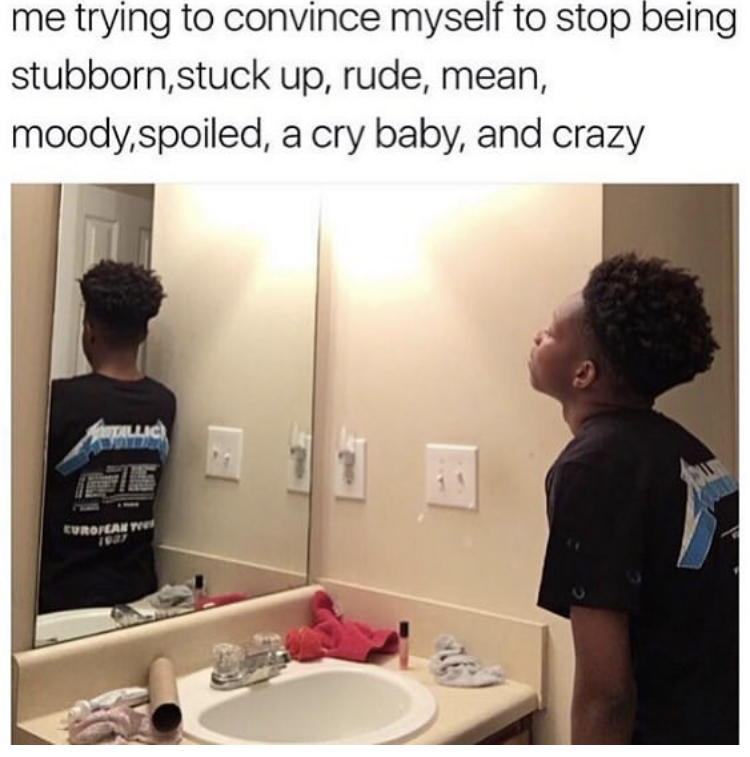 Breastfeeding in the 21st century: epidemiology, mechanisms, and lifelong effect. Lancet. 2016;387(10017):475-490. - Victor S.J. et al., "Breastfeeding in the 21st century: epidemiology, mechanisms and long-term effects". Lancet 2016;387(10017):475-490.
Breastfeeding in the 21st century: epidemiology, mechanisms, and lifelong effect. Lancet. 2016;387(10017):475-490. - Victor S.J. et al., "Breastfeeding in the 21st century: epidemiology, mechanisms and long-term effects". Lancet 2016;387(10017):475-490.
7 Peres KG et al. Effect of breastfeeding on malocclusions: a systematic review and meta - analysis. Acta Paediatr. 2015;104( S 467):54-61. - Perez K.G. et al., "The impact of breastfeeding on malocclusion: a systematic review and meta-analysis". Akta Pediatr. 2015;104(S467):54-61.
8 Mennella JA, Beauchamp GK. Maternal diet alters the sensory qualities of human milk and the nursling's behavior. Pediatrics. 1991;88(4):737-744. - Mennella, JA, Beauchamp, GK, "Maternal nutrition influences the organoleptic properties of breast milk and infant behavior." Pediatrics (Pediatrics). 1991;88(4):737-744.
1991;88(4):737-744.
9 Hassiotou F et al. Maternal and infant infections stimulate a rapid leukocyte response in breastmilk. Clin Transl immunology. 2013;2(4). - Hassiot F. et al., "Infectious diseases of the mother and child stimulate a rapid leukocyte reaction in breast milk." Clean Transl Immunology. 2013;2(4).
10 Brown A, Harries V. Infant sleep and night feeding patterns during later infancy: Association with breastfeeding frequency, daytime complementary food intake, and infant weight. Breast Med . 2015;10(5):246-252. - Brown A., Harris W., "Night feedings and infant sleep in the first year of life and their association with feeding frequency, daytime supplementation, and infant weight." Brest Med (Breastfeeding Medicine). 2015;10(5):246-252.
11 Infant sleep information source. [Internet]. Normal Infant Sleep Development; December 2017 [cited 2018 Feb] - All about baby sleep. [Internet] "The development of normal sleep in a child", December 2017 [cited February 2018].
[Internet] "The development of normal sleep in a child", December 2017 [cited February 2018].
12 Baby sleep science. [Internet]. The-Four-Month-Sleep-Regression-What-is-it-and-What-can-be-Done-About-it. March 2014 [ cited 2018 Feb ] - The science of baby sleep. [Internet], "Four-month sleep regression: what it is and what to do about it." March 2014 [cited February 2018].
13 The Myth Of Baby Sleep Regressions – What’s Really Happening To Your Baby’s Sleep? [Internet]. Pinky Mckay ; December 2017 [ cited 2018 Feb ] - "The Myth of Baby Sleep Regression - What's Really Happening to Your Baby?" [Internet]. Pinky McKay, December 2017 [cited February 2018].
14 Kendall - TACKETT K ET Al 9 .

